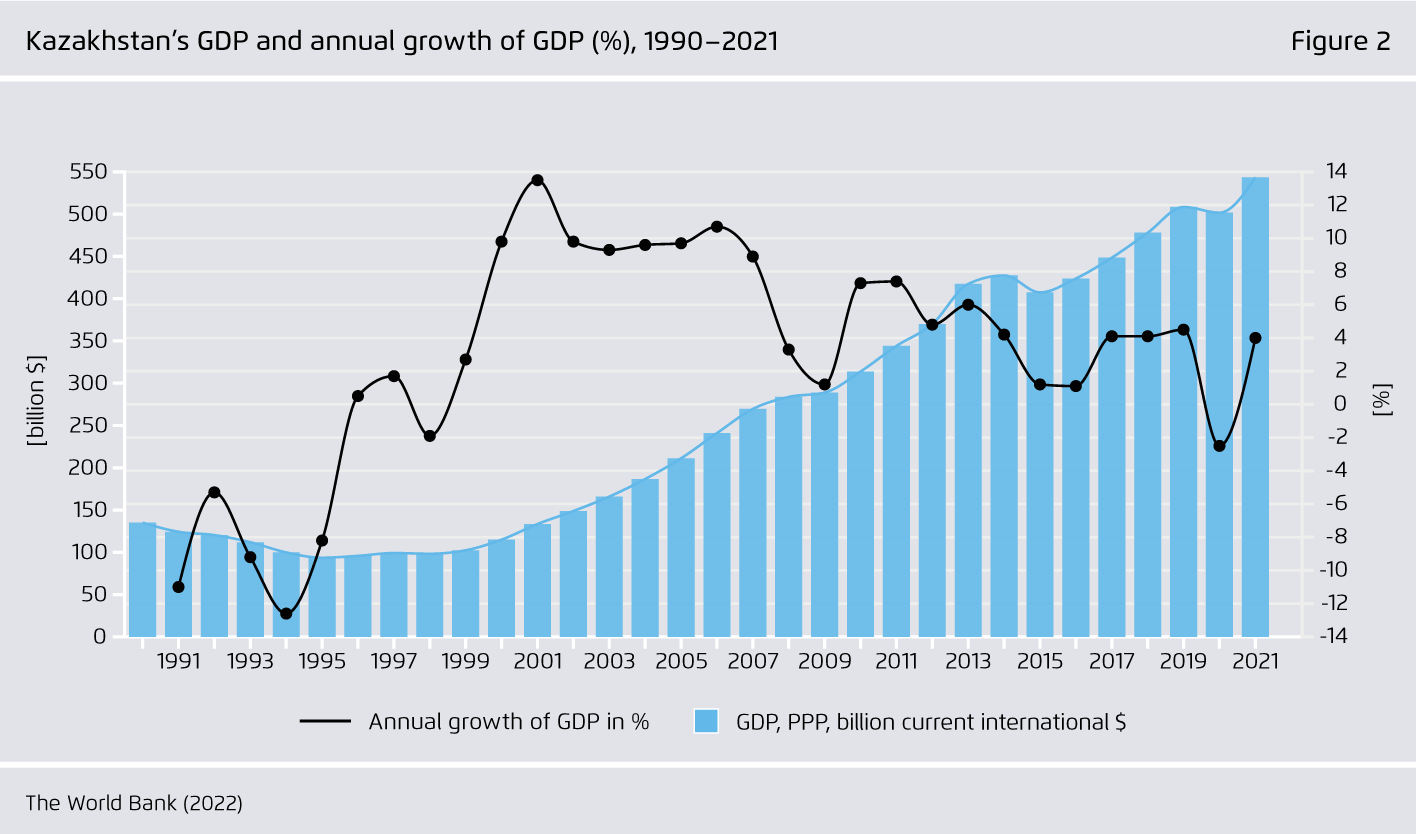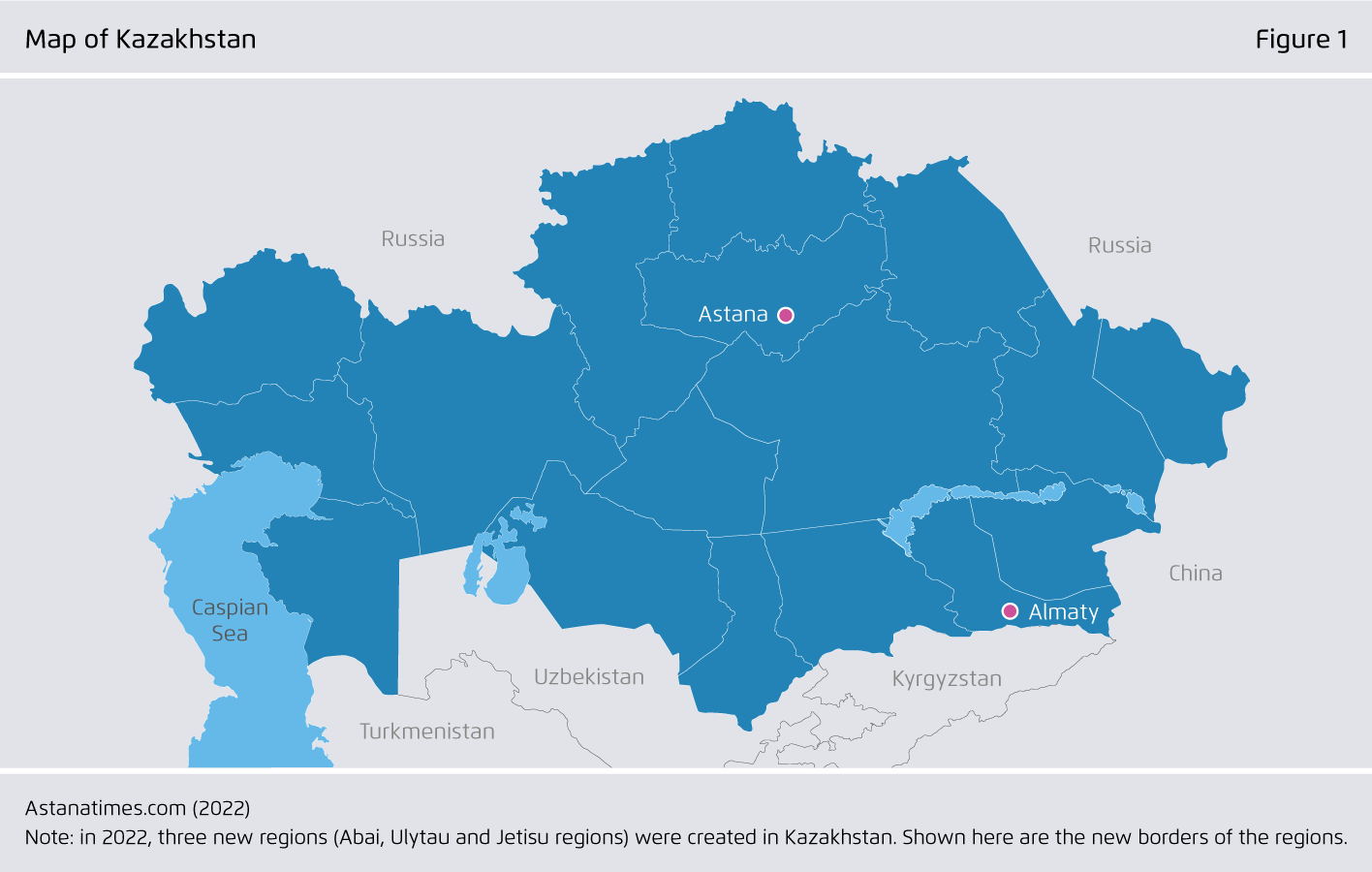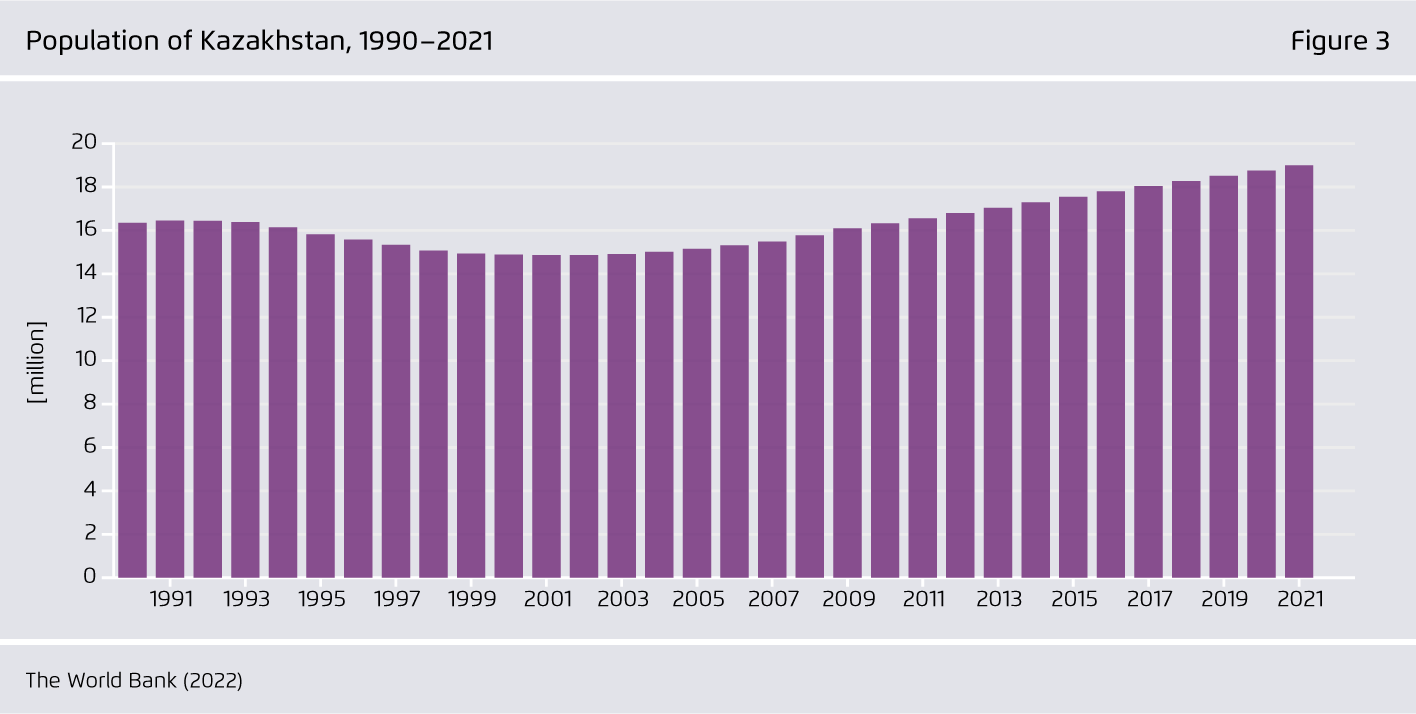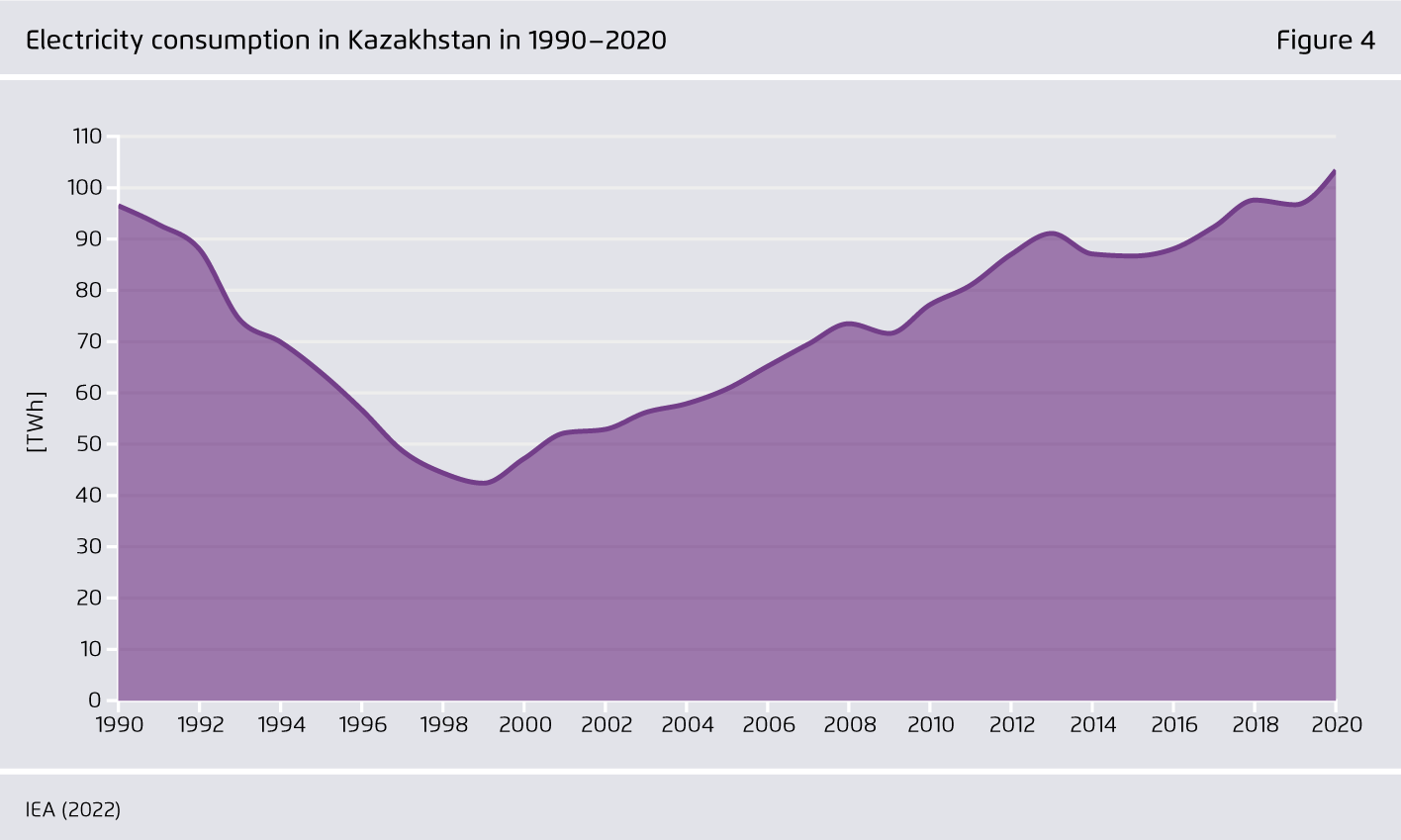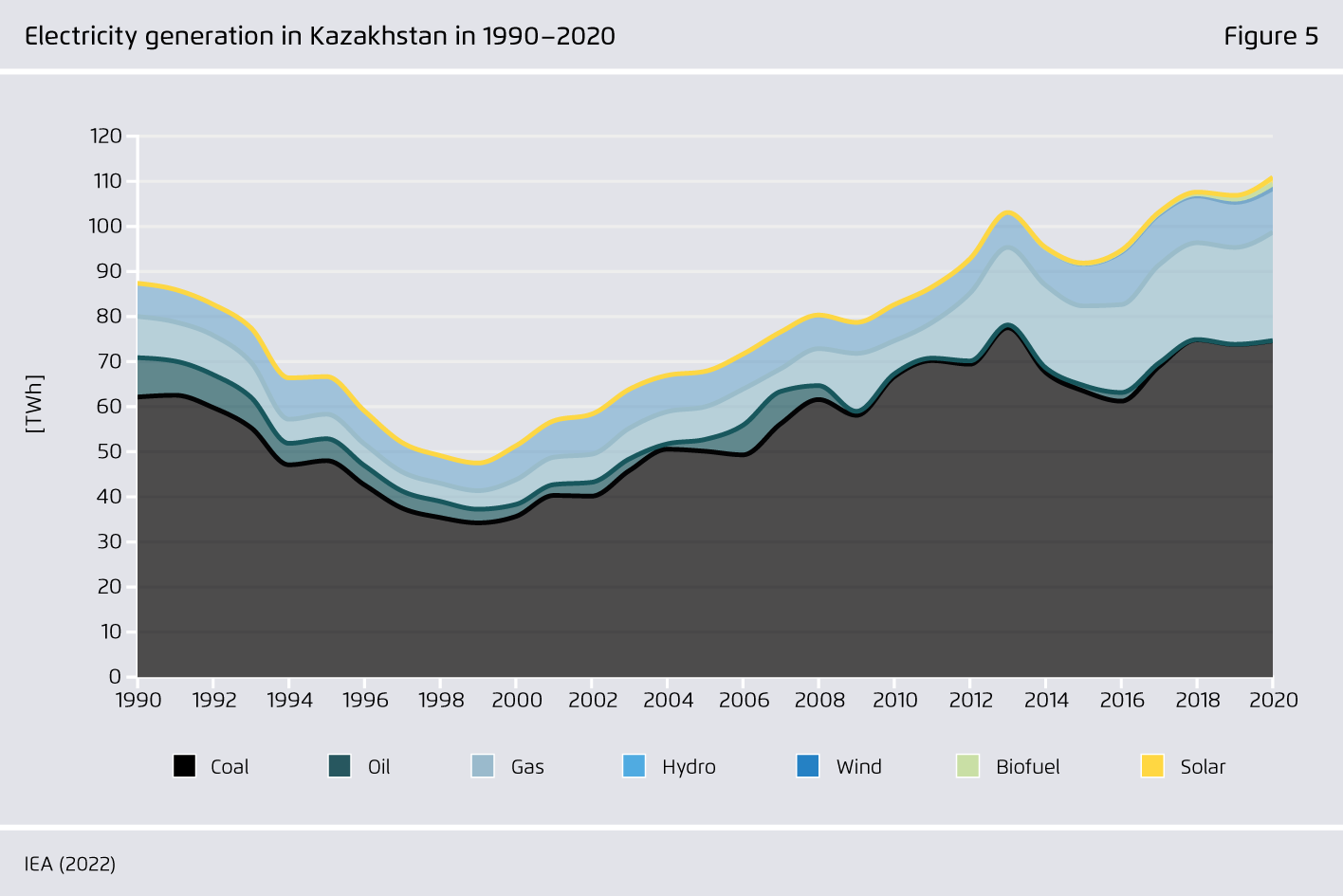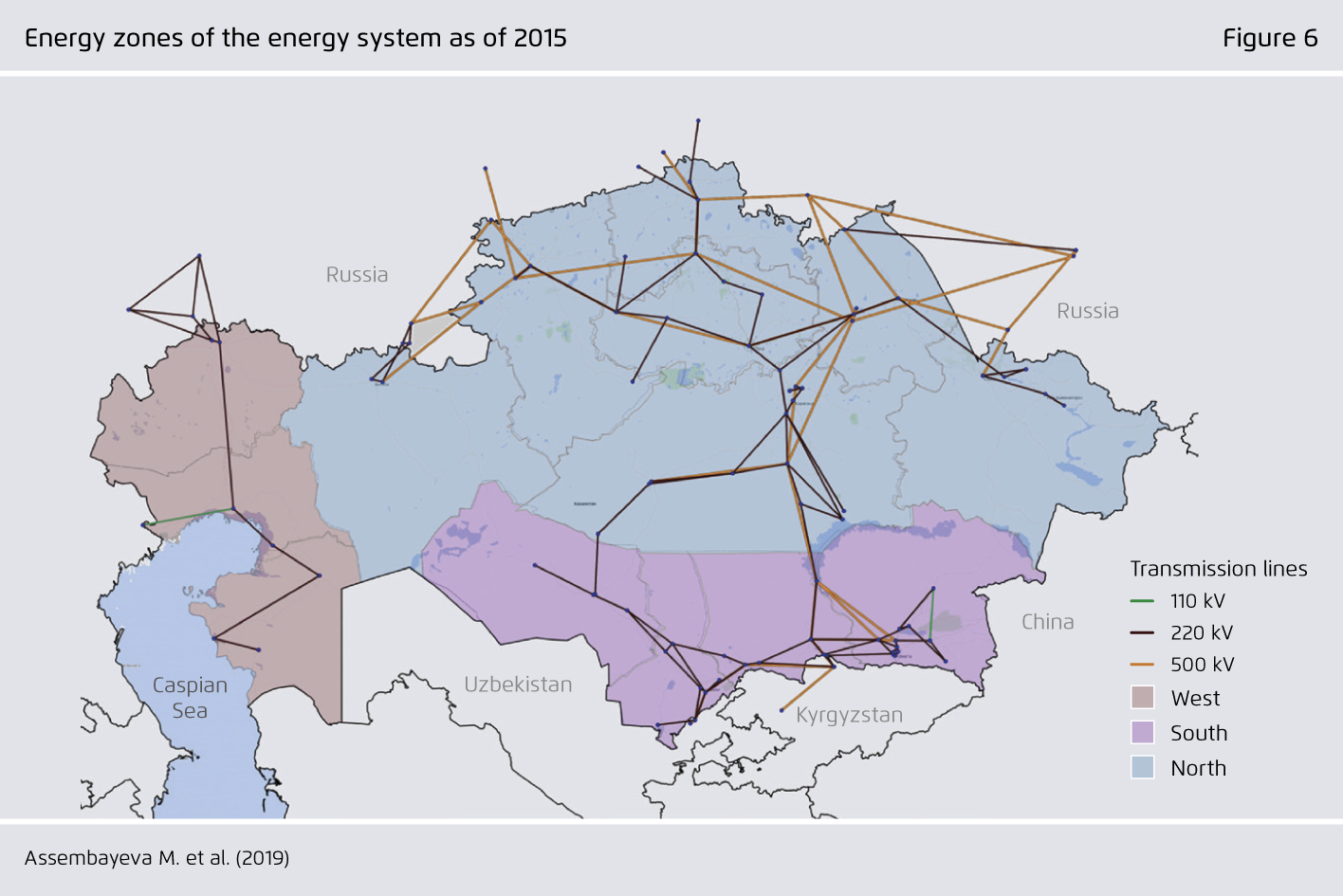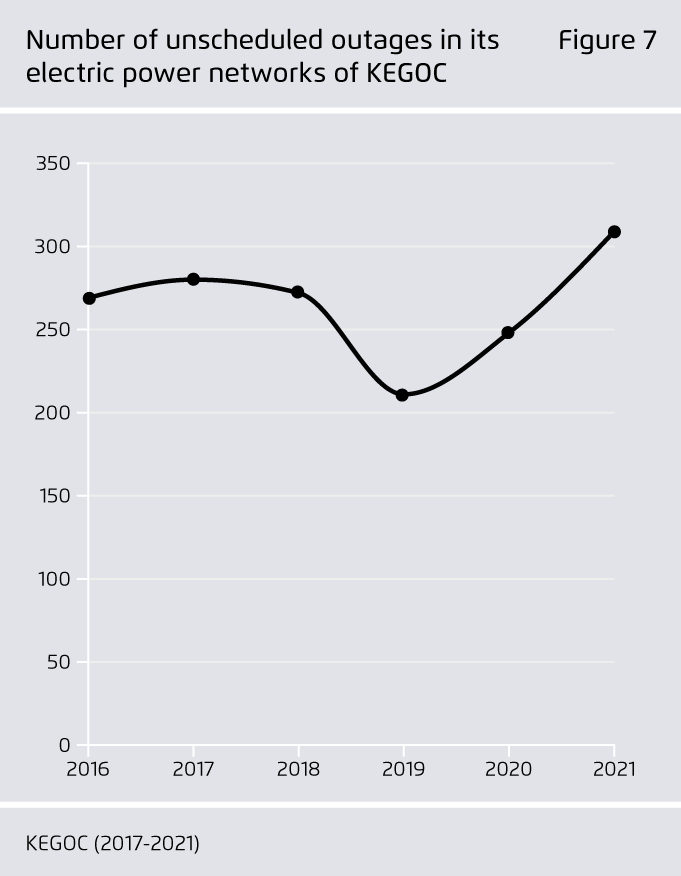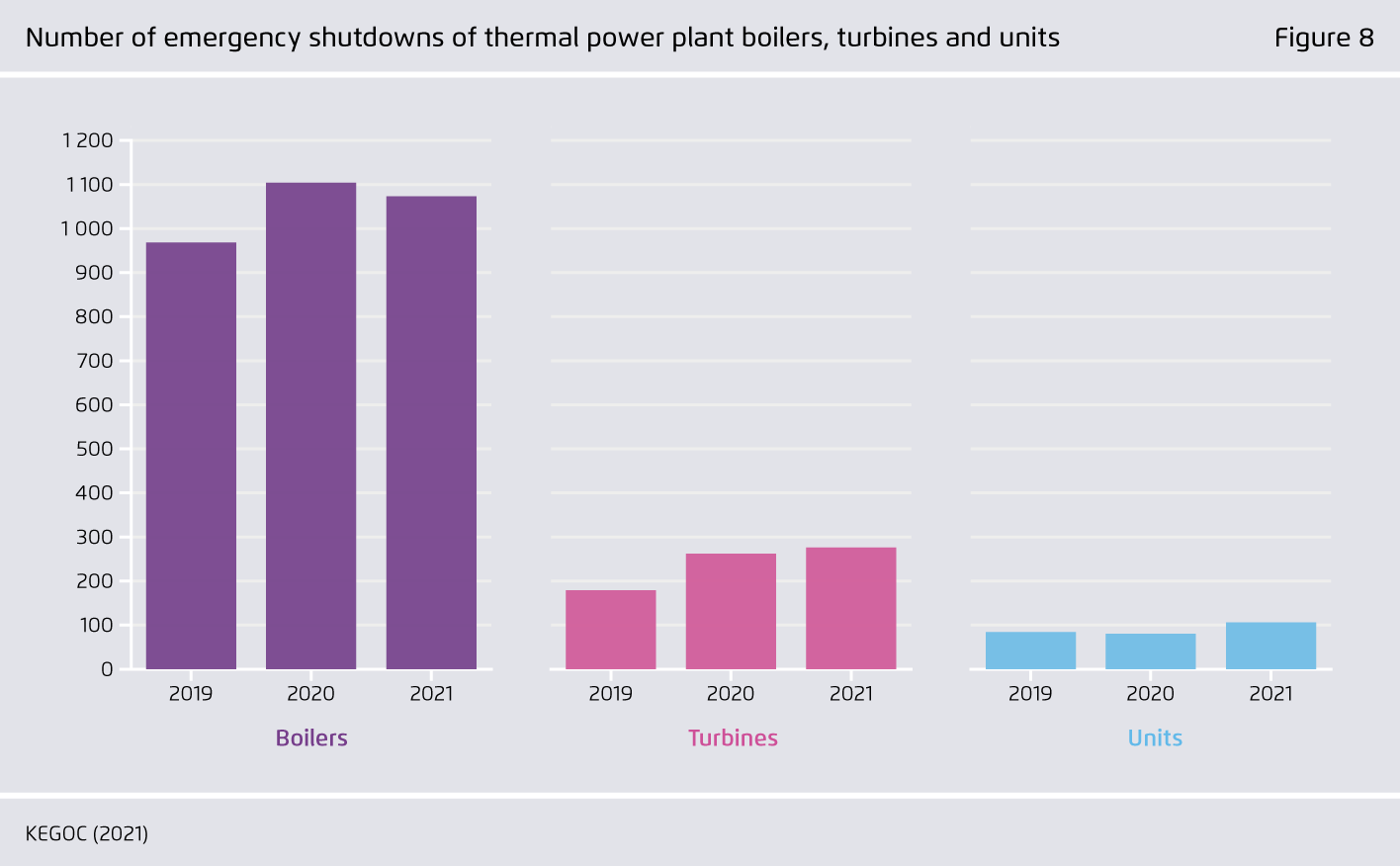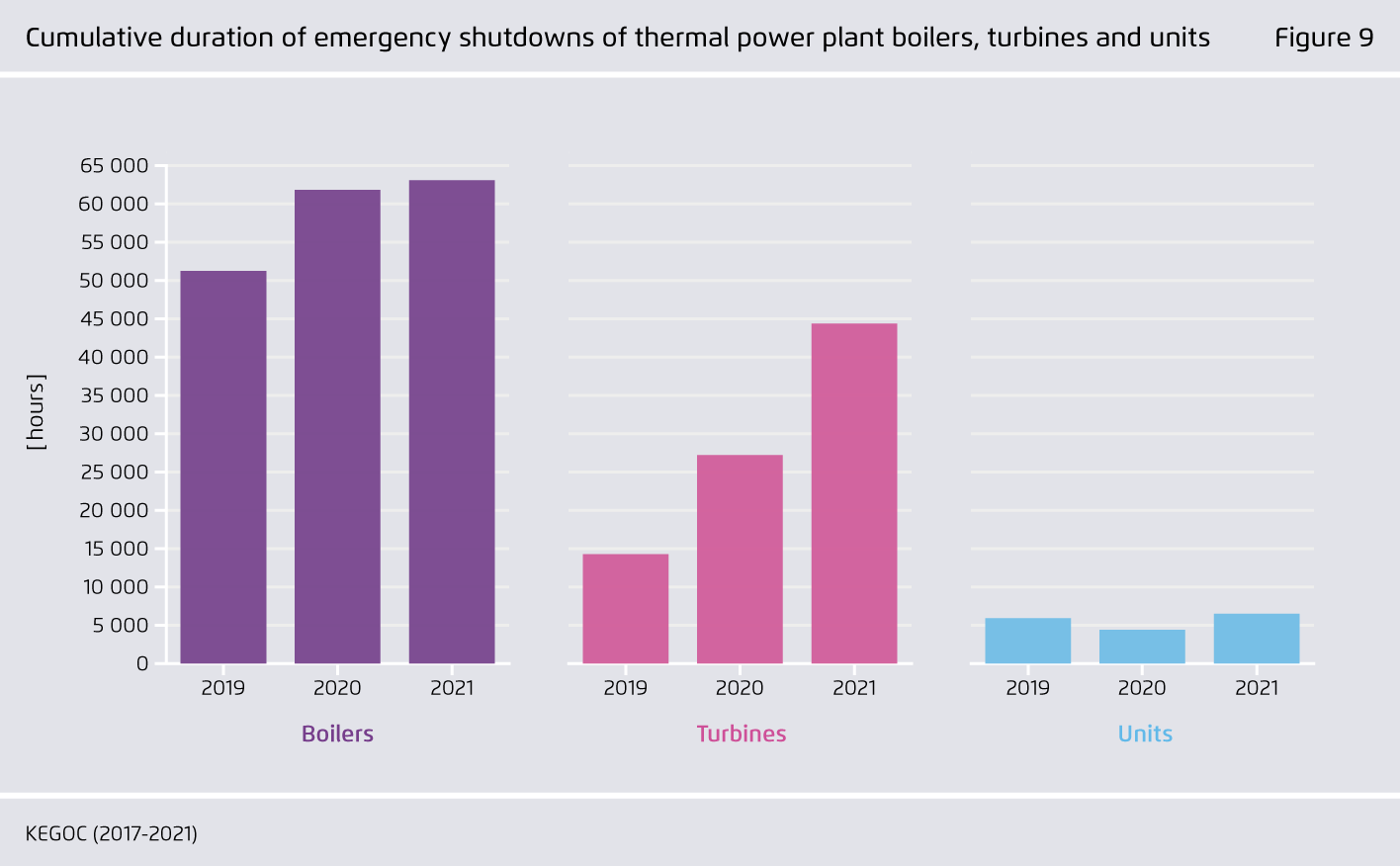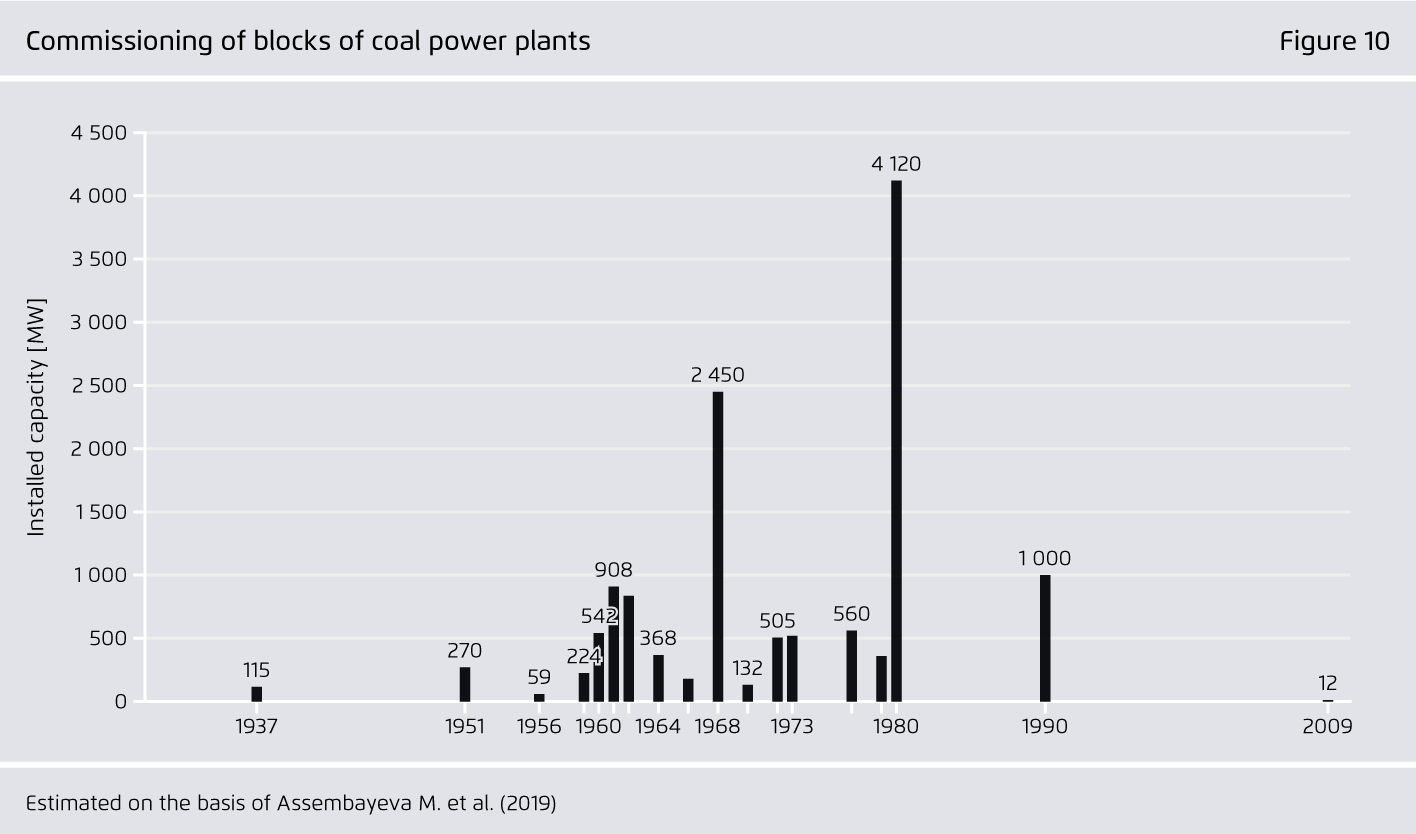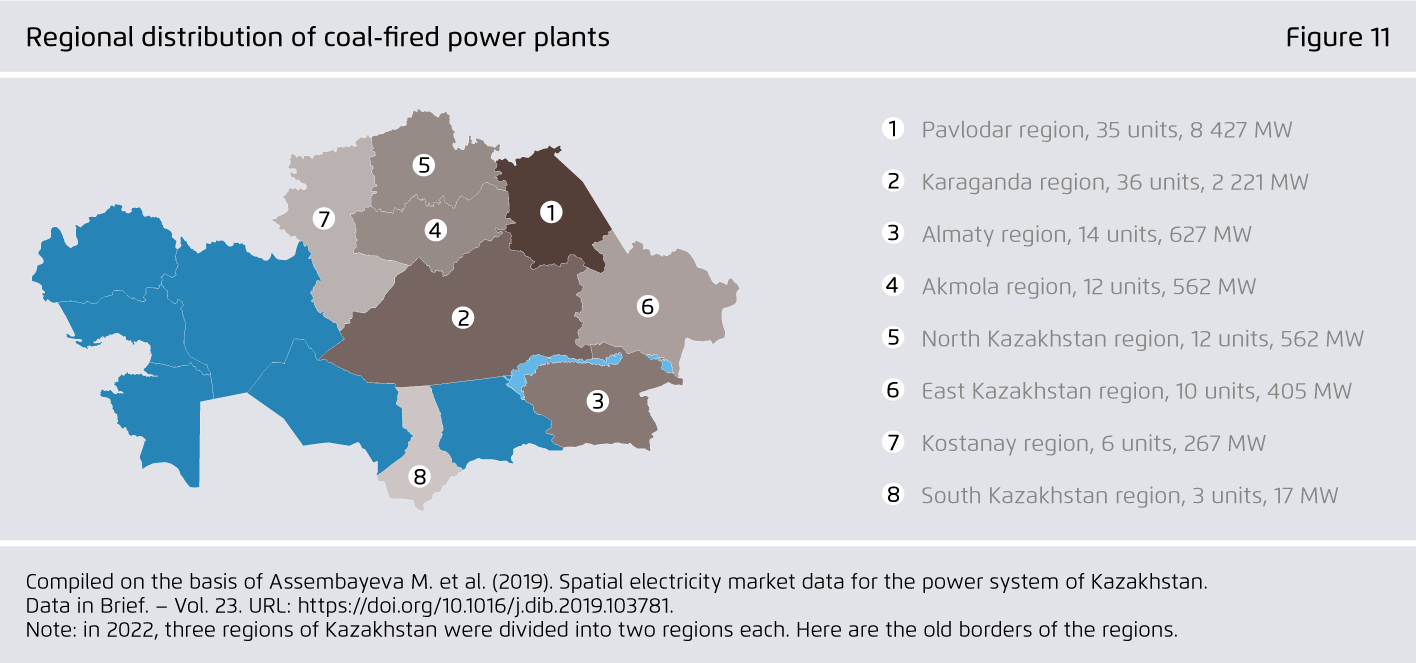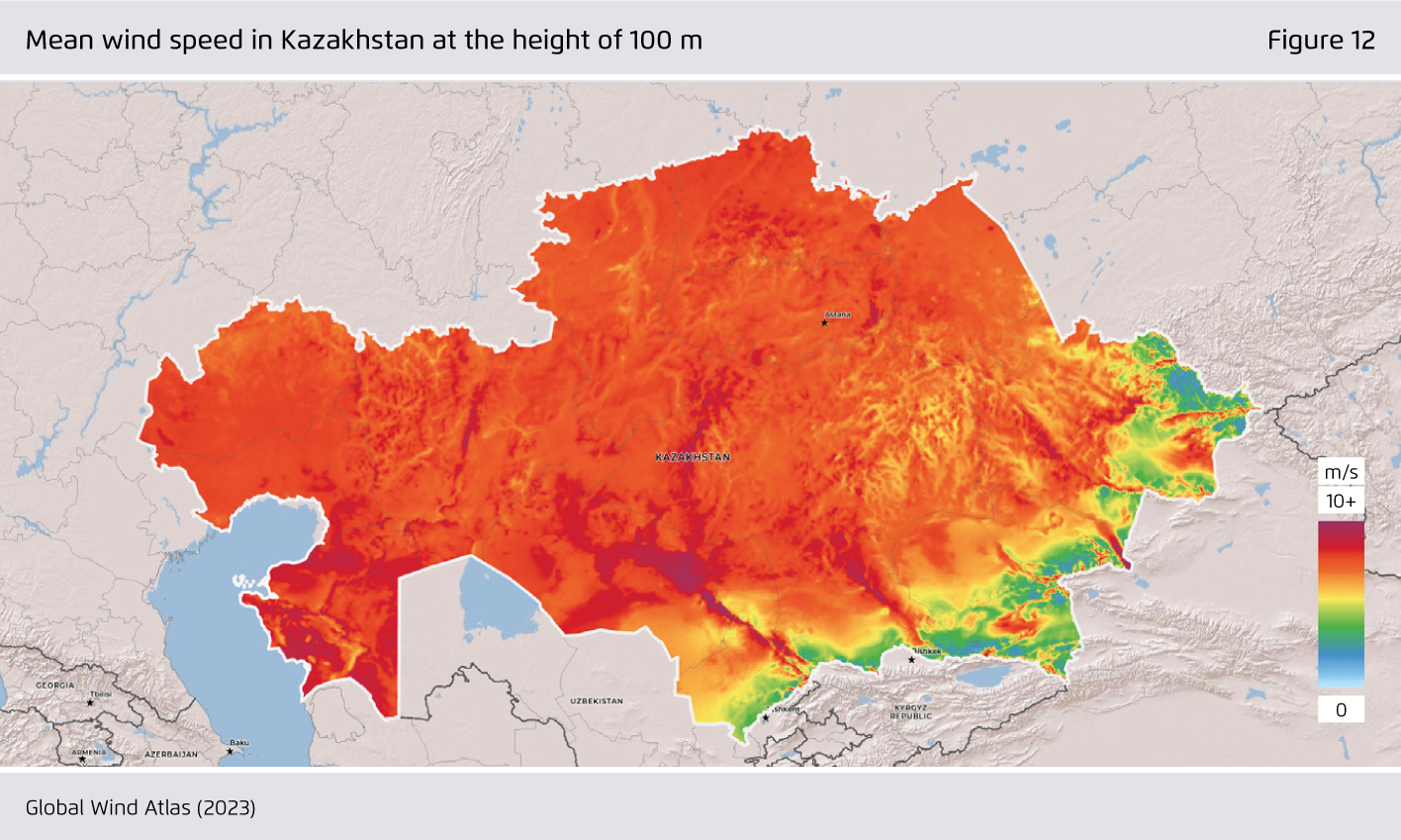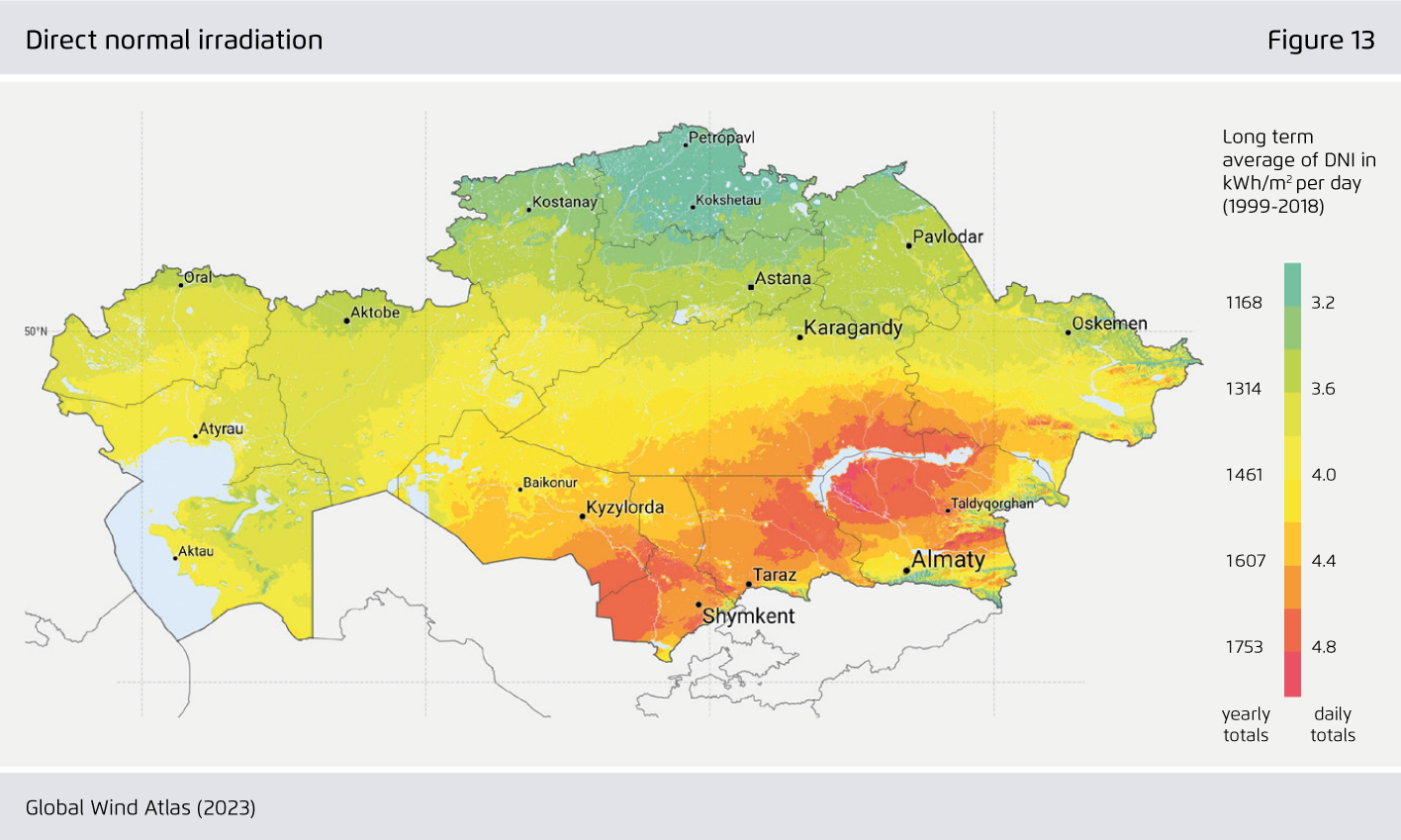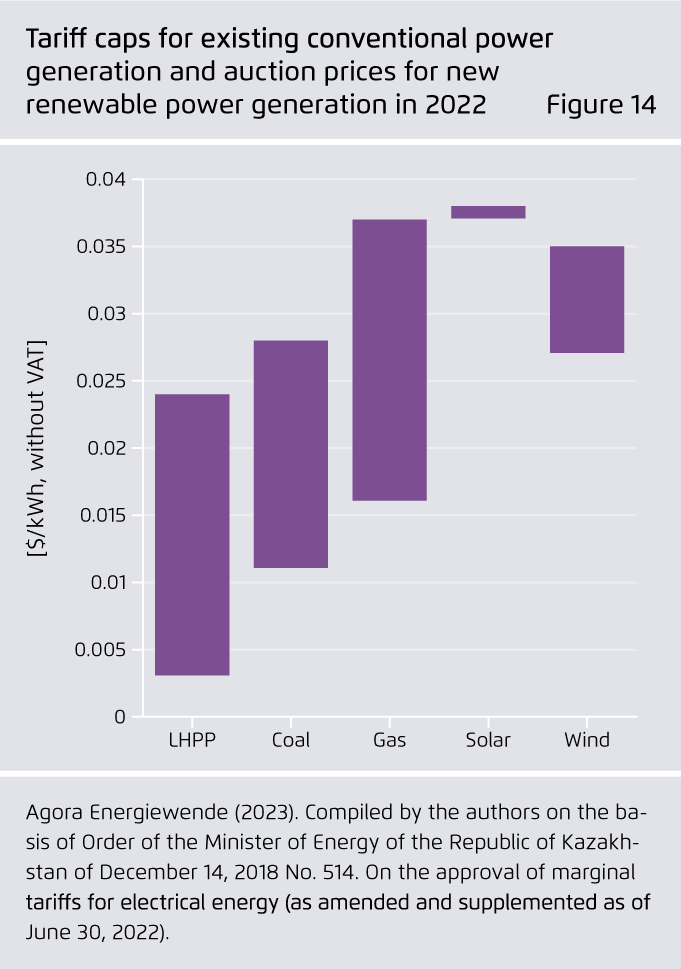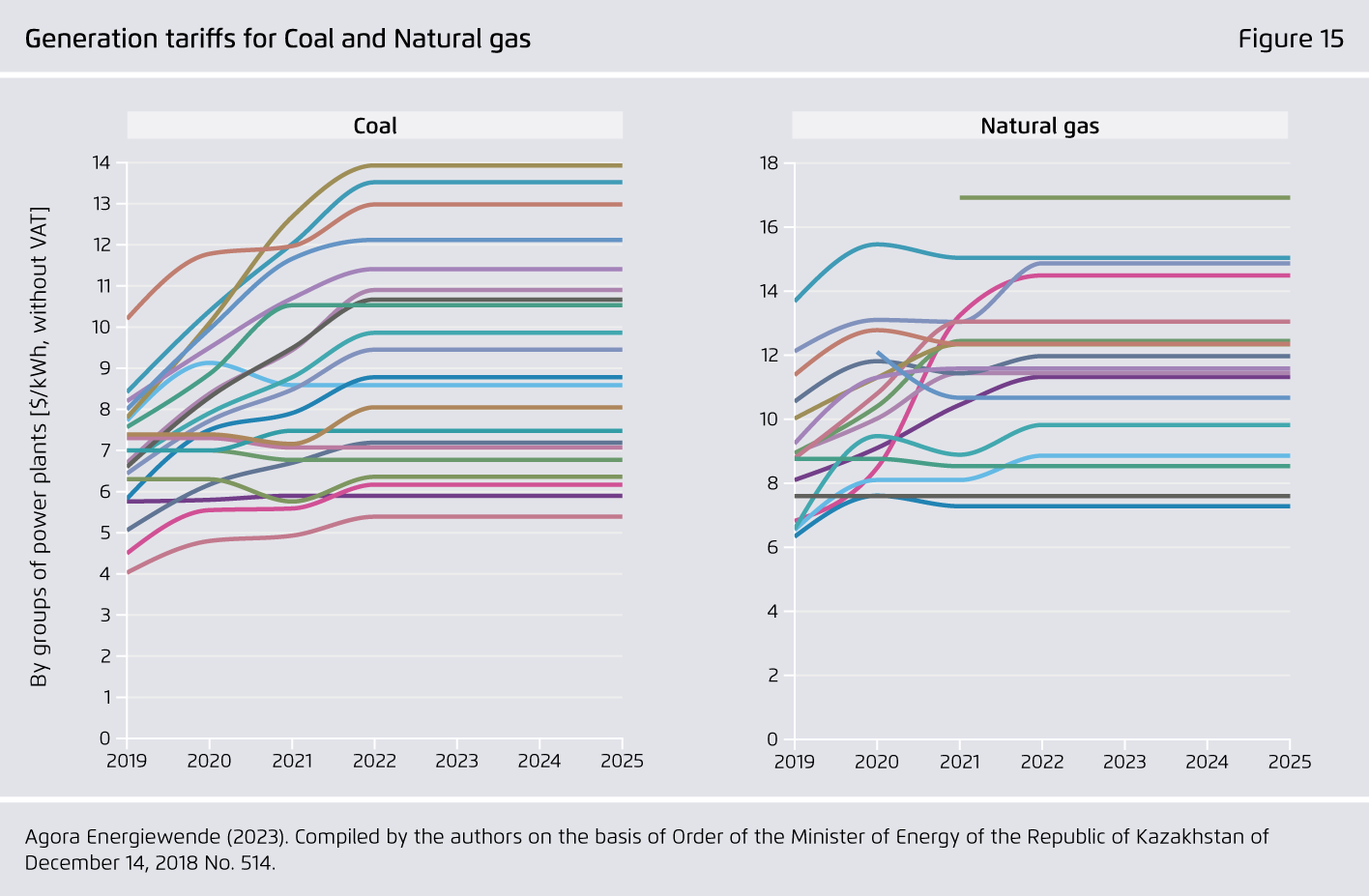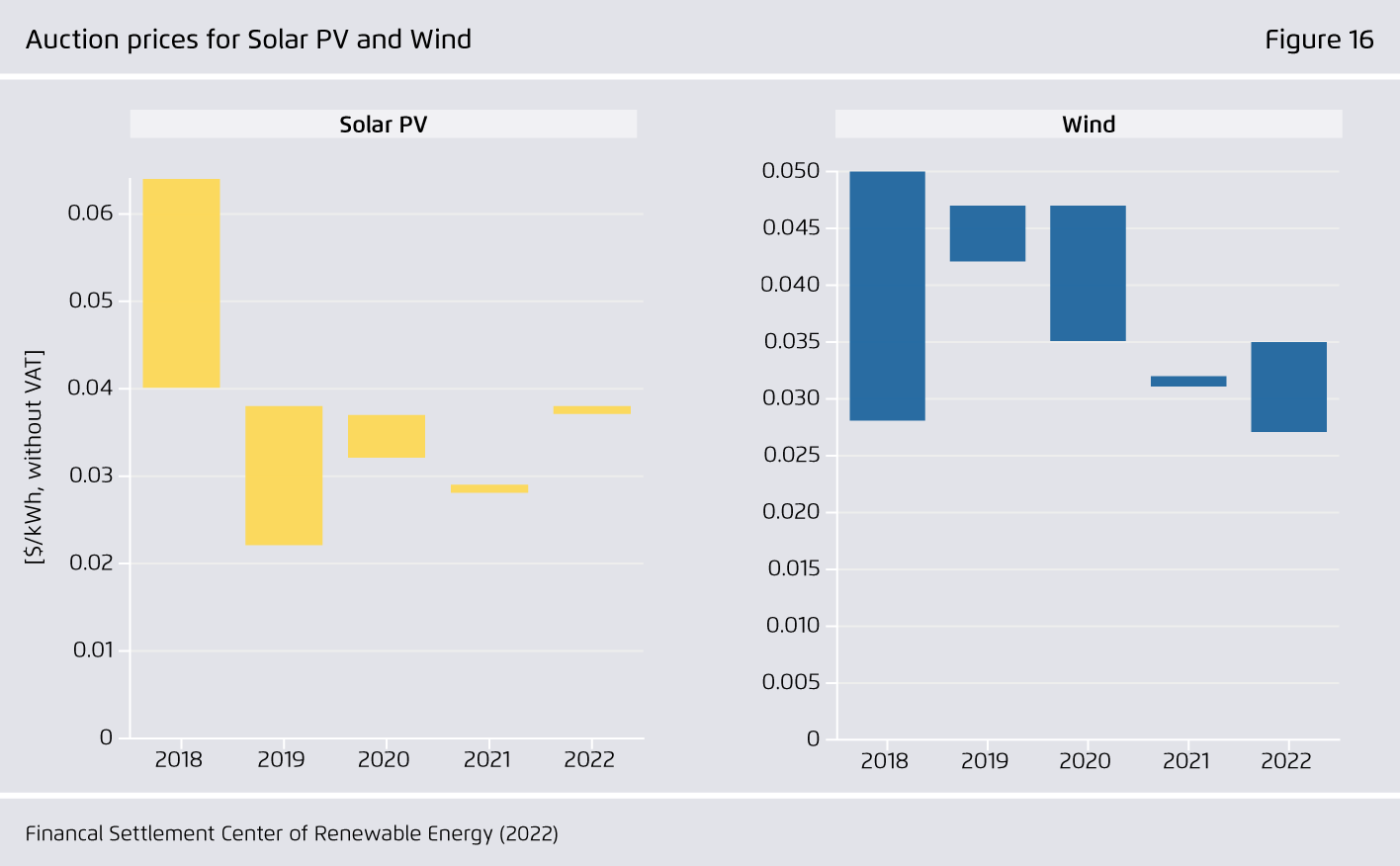-
Kazakhstan’s economy depends heavily on fossil fuels, with coal power plants generating two-thirds of the country’s electricity.
Its long-term targets - increasing the share of renewable and nuclear energy in power production to 50 Percent by 2050, and achieving carbon neutrality by 2060 – have spurred considerable initial investment in wind and solar PV. The share of renewables (excluding large hydropower) reached 4.5 Percent in 2022, and wind and solar PV are competitive against electricity generated by thermal facilities.
-
The necessary modernisation of Kazakhstan’s power system can go hand in hand with a transition to renewables.
As the average age of the coal power fleet is 50 years, scaling up renewables to replace thermal power technologies would enable the country to avoid investing in future stranded assets.
-
In order to speed up renewables deployment, a change in the policy environment is needed.
Currently, high fossil fuel subsidies, low tariffs for coal and natural gas electricity, the predominance of CHP power plants in the production of electricity and heat, and transmission and distribution bottlenecks in addition are all hindering the expansion of wind and solar PV.
-
For a transition to a renewable power system, the following three steps are needed.
First, the modernisation and further development of grids capable of integrating high shares of renewable energy. Second, improvements in energy system flexibility through demand-side management, energy storage systems, hydropower capacity, and other options. Third, a clear coal phase-out plan that includes support for structural change in regions currently economically dependent on coal.
From coal to renewables
A power sector transition in Kazakhstan

Preface
Kazakhstan has not been at the centre of global climate policies and attention in the past. Today, the country ranks 7th globally in terms of carbon intensity, and its economy is highly dependent on fossil fuels – both for export and for national energy production. And recent political developments also make it an interesting case. The Kazakh government is seeking to diversify its economy and has committed to carbon neutrality by 2060. The changes announced are fundamental and pose a significant challenge.
All the more so given Kazakhstan’s increasingly important geopolitical role – with its two big neighbours Russia and China seeking to strengthen their influence, and the European Union as its largest investor. The EU recently stepped up its cooperation with Kazakhstan, the biggest Central Asian country, with a particular focus on energy and climate policies.
This publication aims to provide an up-to-date overview of Kazakhstan’s power sector, focusing especially on the role of coal, the need for modernisation and the vast potential for renewables. If the country succeeds in its commitment to carbon neutrality, it will set an example not only to neighbouring countries in Central Asia, but also to other medium-sized carbon-heavy economies around the world.
Key findings
Bibliographical data
Downloads
-
Main Report
pdf 4 MB
From coal to renewables
A power sector transition in Kazakhstan
-
Translation
pdf 4 MB
От угля к возобнов- ляемым источни- кам энергии
Russian translation
All figures in this publication
Kazakhstan’s GDP and annual growth of GDP (%), 1990–2021
Figure 2 from From coal to renewables on page 8
